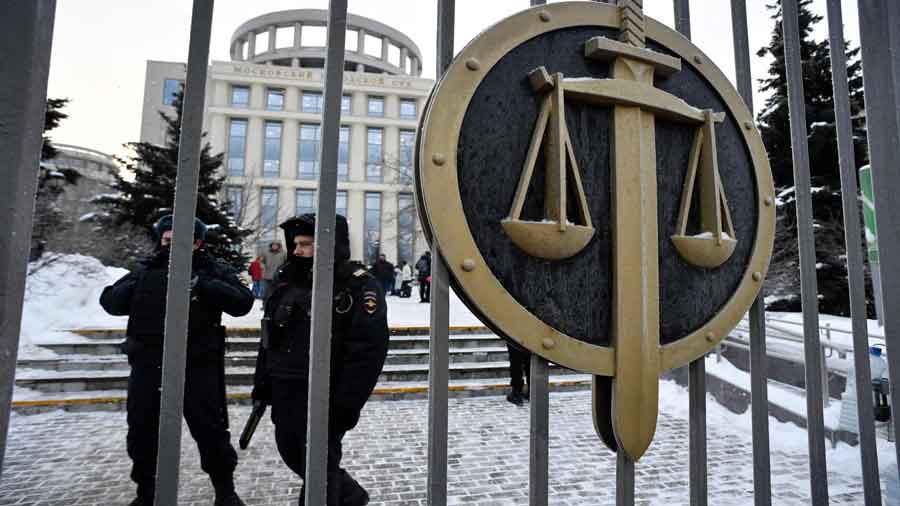Memorial, a rights organisation outlawed by the Kremlin last year, has spent decades trying to force Russia to come to terms with its totalitarian past — and, in the process, illuminated the crimes of its ever more repressive present.
The organisation “is based on the notion that confronting past crimes is essential in preventing new ones”, the Norwegian Nobel Committee said in its statement naming Memorial as a winner of this year’s Peace Prize, along with a human rights defender in Belarus and a rights group in Ukraine.
Co-founded by Andrei D.Sakharov, the physicist and Nobel Peace Prize laureate, the Memorial grew out of a popular movement in the last years of the Soviet Union to commemorate the victims of Stalin’s terror. It documented the Gulag and the KGB’s torture chambers by publishing history books, educating schoolchildren, hosting exhibits and even offering historical walking tours of central Moscow to reveal the horrors of Russia’s past that were otherwise hidden behind the city’s prim facades.
But with the rise of President Vladimir V. Putin, telling the truth about Russia’s history became a dangerous business, and revealing the Kremlin’s historical crimes can border on treason. The chairman of Memorial’s branch in the northern republic of Karelia discovered a killing field where thousands had perished at the hands of Stalin’s secret police.
In 2020, that historian, Yuri Dmitriev, was found guilty of sex abuse charges that were widely seen as retaliation for his work; he is now serving a 15-year prison sentence. Late last year, the Kremlin shut down the Memorial itself. Its Human Rights Center — an offshoot that focused on present-day crimes — “justifies terrorist activities”, Moscow prosecutors said.
While some of Memorial’sstaff members have left the country, others remain in Russia and are fighting in court to keep their offices in central Moscow from being seized by the government. A hearing, in that case, was taking place on Friday.
New York Times News Service











